人教版(2019)必修第二册Unit 4 History and traditions Reading and Thinking课件(50张ppt)
文档属性
| 名称 | 人教版(2019)必修第二册Unit 4 History and traditions Reading and Thinking课件(50张ppt) | 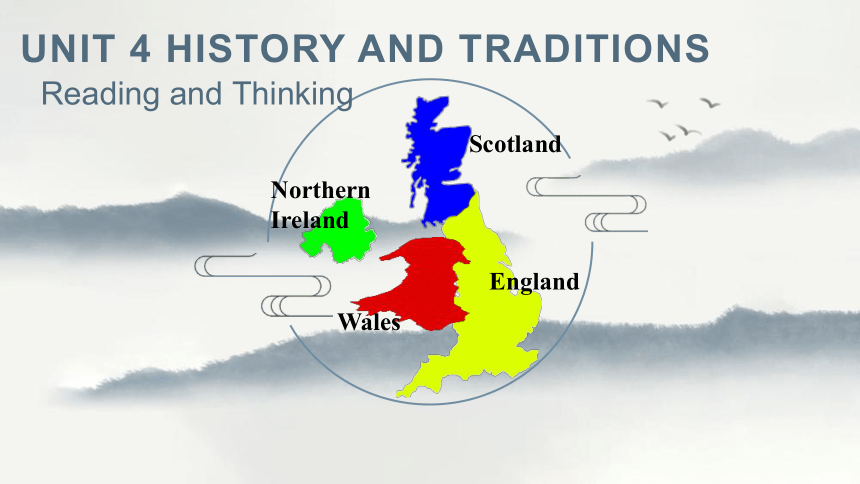 | |
| 格式 | zip | ||
| 文件大小 | 29.7MB | ||
| 资源类型 | 教案 | ||
| 版本资源 | 人教版(2019) | ||
| 科目 | 英语 | ||
| 更新时间 | 2022-02-23 19:05:14 | ||
图片预览


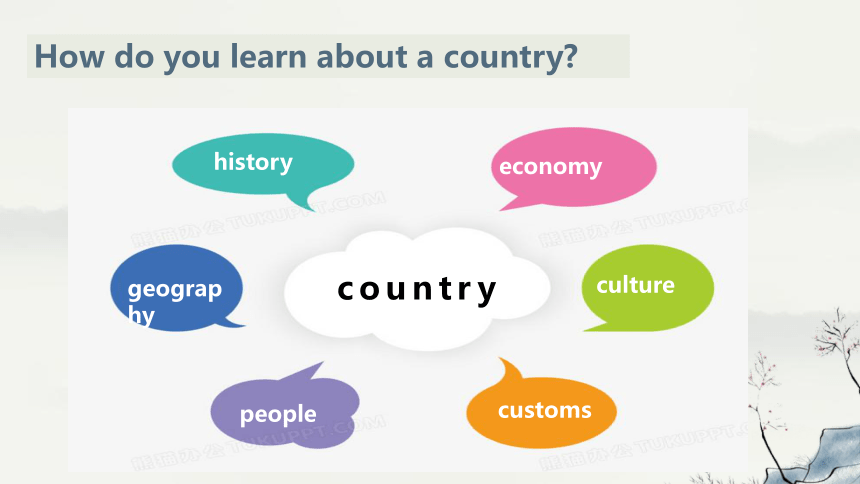

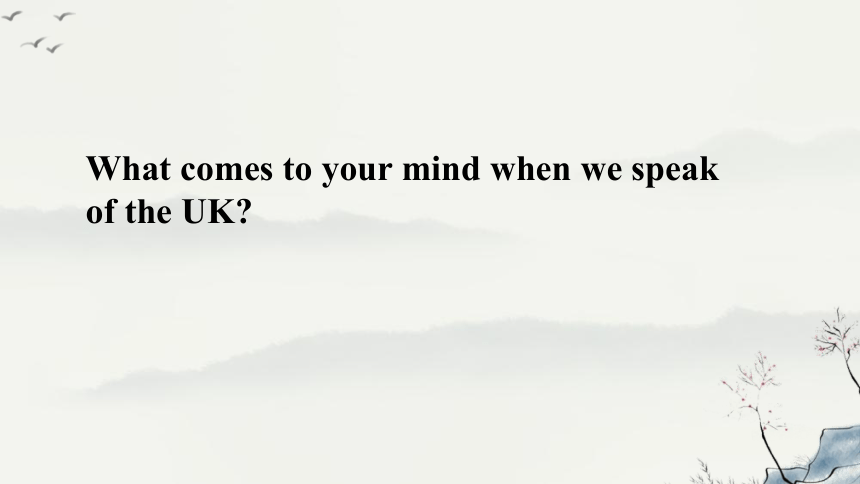

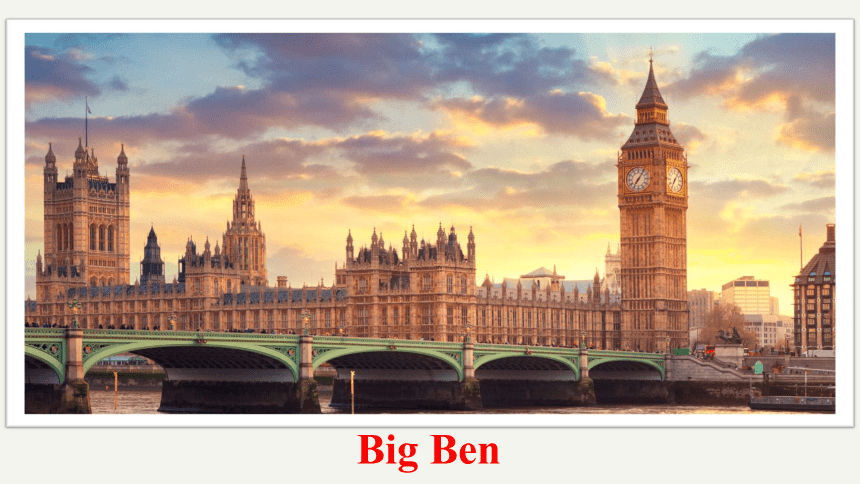
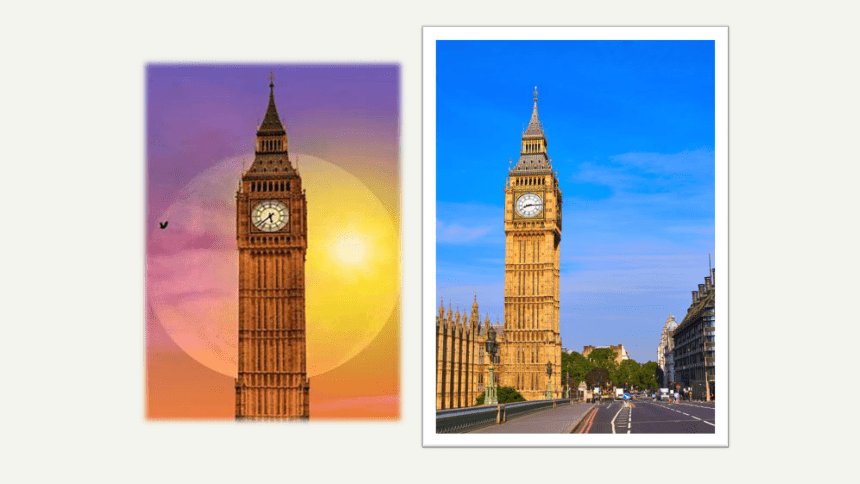


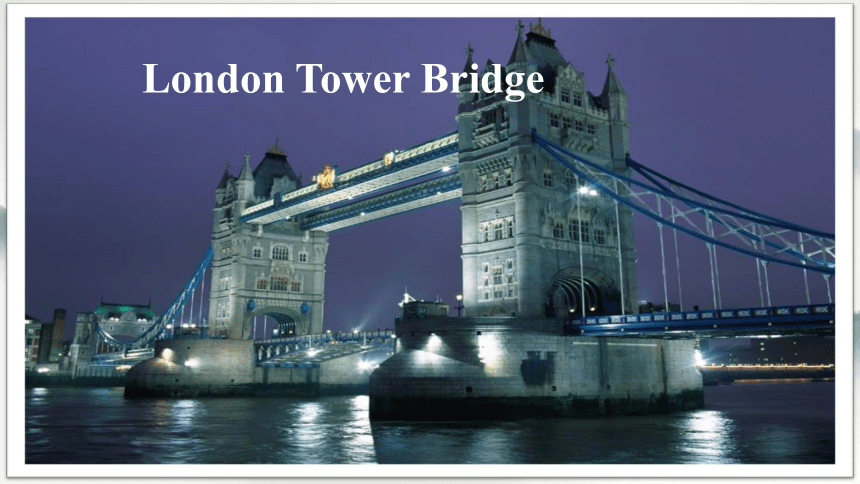
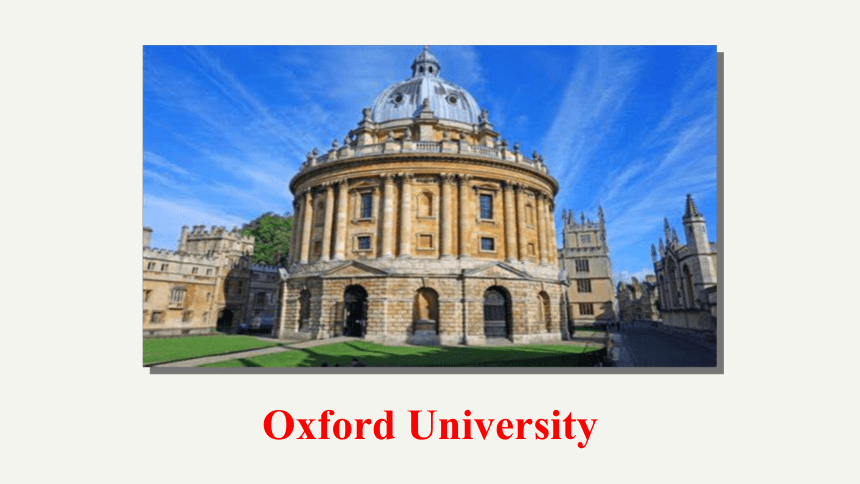
文档简介
(共50张PPT)
UNIT 4 HISTORY AND TRADITIONS
Reading and Thinking
England
Wales
Scotland
Northern Ireland
In this class, you will
read a text about the history of the UK and sort out the detailed information;
introduce the history of the UK according to the timeline.
read the text and learn the usage of key phrases;
sort out the advantages of studying the history of a country;
discuss the importance of studying the history and culture of a country.
Learning objectives
economy
culture
customs
people
geography
history
How do you learn about a country
country
English
What comes to your mind when we speak of the UK
River Thames
Big Ben
London Eye
Big Ben
London eye
River Thames
London Tower Bridge
Oxford University
Prediction
What message can you get from the title
What might the text be mainly about
WHAT’S IN A NAME
Learn about a country through its history
Before reading
How many parts make up the UK What are they
Four parts.
England, Wales, Scotland and Northern Ireland.
Read the text aloud.
What is the text mainly about
The text is mainly about the history
of the names of the UK.
Read the text and answer the questions.
Fast reading
WHAT’S IN A NAME
The United Kingdom,Great Britain,Britain,England—many people are confused by what these different names mean. So what is the difference between them,if any Getting to know a little bit about British history will help you solve this puzzle.
In the 16th century,the nearby country of Wales was joined to the Kingdom of England. Later,in the 18th century,the country Scotland was joined to create the Kingdom of Great Britain. In the 19th century,the Kingdom of Ireland was added to create the United Kingdom of Great Britain and Ireland. Finally,in the 20th century,the southern part of Ireland broke away from the UK,which resulted in the full name we have today:the United Kingdom of Great Britain and Northern Ireland Most people just use the shortened name:“the United Kingdom” or “the UK”. People from the UK are called “British”,which means the UK is also often referred to as Britain or Great Britain.
The four countries that belong to the United Kingdom work together in some areas. They use the same flag,known as the Union Jack,as well as share the same currency and military defence. However,they also have some differences. For example,England, Wales,Scotland,and Northern Ireland all have different education systems and legal systems. They also have their own traditions,like their own national days and national dishes. And they even have their own football teams for competitions like the World Cup!
The United Kingdom has a long and interesting history to explore, which can help you understand much more about the country and its traditions. Almost everywhere you go in the UK,you will be surrounded by evidence of four different groups of people who took over at different times throughout history. The first group,the Romans, came in the first century. Some of their great achievements included building towns and roads. Next,the AngloSaxons arrived in the fifth century. They introduced the beginnings of the English language,and changed the way people built houses. The Vikings came in the eighth century,left behind lots of new vocabulary,and also the
names of many locations across the UK. The last group were the Normans. They conquered England after the well-known Battle of Hastings in the 11th century. They had castles built all around England,and made changes to the legal system.
The Normans were French,so many French words slowly entered into the English language. There is so much more to learn about the interesting history and culture of the United Kingdom. Studying the history of the country will make your visit much more enjoyable. The capital city London is a great place to start,as it is an ancient port city that has a history dating all the way back to Roman times. There are countless historic sites to explore, and lots of museums with ancient relics from all over the UK. The UK is a fascinating mix of history and modern culture,with both new and old traditions. If you keep your eyes open,you will be surprised to find that you can see both its past and its present.
Activity 1 What are the four countries of the United Kingdom Which two were the first to be joined together
Activity 2 The two chief advantages of studying the history of a country are to help you understand more about the country and its traditions and to make visiting it more enjoyable.
The four countries of the United Kingdom are England,Wales,Scotland,and Northern Ireland.
England and Wales were the first two to be joined together.
According to the text,what are two chief advantages of studying the history of a country
Read and find out
How is the text organized
The text is organized according to the timeline.
Read and find out
Read again and sort out the information according to the timeline.
When What happened What changed
Careful reading
Activity 1 Read again and sort out the information according to the timeline.
Careful reading
When What happened What changed
Romans arrived ________________
Anglo-Saxons came ________________
Vikings came ________________
11th century ________________ ________________
16th century ________________ ________________
18th century ________________ ________________
19th century ________________ ________________
20th century ________________ ________________
1st century
5st century
8st century
Normans conquered England after
the Battle of Hastings
Wales was joined to Kingdom
of England
Scotland was joined to England and Wales
Ireland was added
the southern part of Ireland broke away
towns and roads
language and the way houses were built
vocabulary and names of locations across the UK
castles built,legal system changed,
and new words from French introduced
...
“Kingdom of Great Britain”
formed/created
“United Kingdom of Great Britain
and Ireland”formed/created
name changed to“United Kingdom
of Great Britain and
Northern Ireland’’
Activity 2 Complete the conversation about the UK using the phrases in their correct forms.
as well as belong to add to join to break away keep your eyes open
A: I can never remember what the UK means! There’s England,Britain, Great Britain!
B:Well,it helps if you remember that there are four countries that___________ the UK. That’s why it’s called the United Kingdom.
A:Four countries I must have been asleep in that part of our history class!
So the first country was England,and the others were that
B:Yes,right. First England,then Wales,then Scotland. The last country was Ireland,but later the southern half didn’t want to be the United Kingdom.
A:Oh,I remember now! The southern part from Northern Ireland,right
B:Yes,you got it well remembered! But in history class next time!
as well as
belong to
added to
joined to
broke away
keep your eyes open
Activity 3 Discuss the questions in groups.
Why is it important to study the history and culture of a country before visiting it
2 What important things should visitors know about before they come to China
Studying a country’s history and culture before visiting it is important because it will help you understand the place better and have a more enjoyable experience. You will be able to interact better with the people and their culture and have a richer experience.
Visitors to China should know something about the history of the country and about the cultural traditions of the area being visited,such as the food eaten,or festivals celebrated there.
Ⅰ 阅读理解 (根据课文内容选择正确答案)
1. How many countries does the UK consist of
A. Two. B. Three. C. Four. D. Five.
2. Which invaders influenced London’s language most
A. Anglo-Saxons. B. Romans. C. The Normans. D. Vikings.
3. From the passage,we know that .
A. all the four countries share the same education systems
B. the Romans came to England before the Anglo-Saxons
C. it was easy for Northern Ireland to join England,Scotland and Wales
D. in the 19th century,the southern part of Ireland broke away from the UK
4. What should you do if you want to make your trip to the UK more enjoyable
A. Know the location. B. Find a company.
C. Find a good guide. D. Study the history of the country ahead of time.
○
○
○
○
课文预习自测
课文思维导图梳理与提示
Ⅱ 语法填空 (根据课文内容和语法规则完成短文)
Studying British history can help you understand 1 the United Kingdom,Great Britain,Britain,England mean. In the 16th century,Wales was joined to the Kingdom of England. In the 18th century,Scotland was joined 2 (create)the Kingdom of Great Britain. In the 19th century,the Kingdom of Ireland was added to create the United Kingdom of Great Britain and Ireland. However,the southern part of Ireland 3 (break)away from the UK,which resulted 4 the full name we have today:the United Kingdom of Great Britain and Northern Ireland.
Although the four countries work together in some areas,they still have some differences. The United Kingdom has a long and interesting history to explore,5 can help you understand much more about the country and 6 (it)traditions. No matter where you go in the UK,you will
7 (surround)by evidence of four different groups of people who took over at different times throughout history. 8 (study)the history of the country will make your visit much more
9 (enjoy). The UK is a fascinating mix of history and modern culture,with both new and old 10 (tradition).
what
to create
broke
in
which
its
Studying
be surrounded
enjoyable
traditions
Language points
核心词汇
1 puzzle n. & vt.
(1)n. 谜;智力游戏;疑问
搭配:in a puzzle 不知如何是好,感到困惑
(2)vt. 迷惑;使困惑
puzzling adj. 令人迷惑的
puzzled adj. 迷惑不解的,困惑的
puzzlement n. 迷惑,困惑
join...to... 把……和……连接或联结起来
connect...to/with/and... 把……与……连接起来(具体含义)
join in 参加;加入
3 break away(from sb. /sth.) 脱离;背叛;逃脱
break away 中的 away 是副词,如果后接宾语则要再加介词 from,构成短语 break away from(从……中脱离)。
【归纳拓展】
break off 中断;折断 break out 突然发生,爆发
break through 突破 break up 破碎;分解;解散;(关系)破裂
break down(机器等)出故障;垮掉;分散;失败
break in 破门而入;打断,插嘴
break into 破门而入;突然……起来
result in 导致,造成
多种“导致”:result in,lead to,bring about,contribute to,cause
【归纳拓展】
result in 导致,造成
result from 起因于
as a result 因此,结果
as a result of 由于
refer to...as... 把……称为……
“把……看作 / 称为”的表达方式还有:
treat...as... think of...as... regard...as...
look on...as... view...as... consider...as…
(1)refer to 提到,谈到;涉及,关于;参考,查阅
(2)refer...to... 把……提交……;把……归功于……;把……称作……
reference n. 参考;查阅;参考书目;推荐信
6 belong to vt. 使受伤;损害
(1)属于(某人)(2)是(俱乐部、组织等)的成员(3)是(某族类或纲目)的一部分,属于
易错分析:
(1) belong to 既不能用于被动语态,也不能用于进行时态。
这辆自行车是我的。
This bike belongs to me. (√)
This bike is belonged to me. (×)
This bike is belonging to me. (×)
(2) to 是介词,后面可跟名词或代词作宾语。
(3)可用 belong to 的现在分词形式作后置定语。
belongings n.(pl.)所有物;财产,财物(表达此意时必须用复数)
7 as well as
(1)意为“同(一样也),和,还,不但……而且……”,连接并列成分。
(2)意为“除……之外”,相当于 in addition to。后常接名词或动名词,尤其是当其位于句首时。
主谓一致拓展:
(1)A as well as B 强调 A,作主语时谓语动词的数与 A 保持一致。
有类似用法的还有 along with,together with,rather than,with 等。
Tom together with other graduates is not suitable to do the job.
(2)not only A but also B 强调 B,作主语时谓语动词的数与 B 保持一致。
I as well as Mary have adapted to the new environment.
=Not only Mary but also I have adapted to the new environment.
不仅玛丽,我也适应了新环境。
8 defence n. 防御;保卫
【误区警示】
defence 后接“入侵者”或“造成危害者”时,介词用 against;若接“被保护者”,则介词用 of。
【词语积累】defend...from/against... 保护……免受…… defend oneself against... 为自己辩护
9 legal adj. 法律的;合法的
illegal adj. 非法的,违法的
10 surround vt. 围绕;包围
【词语积累】
surround vt. → surrounding adj. 附近的 → surroundings n. 环境(复数)
11 evidence n. 证据,证明
搭配:There is evidence that... 有证据表明……
evident adj. 清楚的;显然的
It is evident that... 很明显……
12 achievement n. [C]成就;成绩;功绩;[U]达到,完成
【词语积累】
achieve v. 实现;取得,达到
achieve one’s goal/dream 达到目标 / 实现梦想
12 include doing sth. 包含做某事
including 是介词,后接名词、代词或动名词作宾语;included 是形容词,意为“包括在内的”,作后置定语,即 including A = A included。
Everyone has to make a proposal at the meeting including you.
= Everyone has to make a proposal at the meeting,you included.
每个人都必须在会上提出一个建议,包括你在内。
14 location n. 地方;地点;位置
the location of the factory 工厂的位置
【词语积累】
(1)locate vt. 坐落于;位于;找出……的位置
(2)located adj. 处于;位于;坐落在
15 battle n. & v.
(1)n. 战役;搏斗
a long battle 旷日持久的斗争 accept the battle 应战
(2)vi. & vt. 搏斗;奋斗
16 keep your eyes open(for) 留心;留意
keep up 保持;继续
keep up with 跟上;保持同步;和……保持联系
keep away(from)避免接近(……)
keep sb. from doing... 阻止某人做……
keep on 继续
keep fit 保持健康
keep in touch with 与……保持联系
keep one’s promise 履行诺言
【句式分析】该句中 if any 是省略句,其完整形式为 if there is any difference。
1 if any 如果有的话
【归纳拓展】
if so 如果是这样的话 if not 如果不是这样;不然,否则
if necessary 如果有必要 if possible 如果可能的话
if ever 如果曾经有的话
重点句式
【句式分析】there is so much more to learn... 是 there be... 结构。
2 There be + 主语 + 非谓语动词.
There are many cases lying in the corner of the room.
房间的角落里有许多箱子。
【归纳拓展】
There are a lot of things to solve. 有很多事情需要解决。
Summary
Organize the key information according to the timeline.
1st century
5th century
8th century
11th century
16th century
18th century
19th century
20th century
THE END
UNIT 4 HISTORY AND TRADITIONS
Reading and Thinking
England
Wales
Scotland
Northern Ireland
In this class, you will
read a text about the history of the UK and sort out the detailed information;
introduce the history of the UK according to the timeline.
read the text and learn the usage of key phrases;
sort out the advantages of studying the history of a country;
discuss the importance of studying the history and culture of a country.
Learning objectives
economy
culture
customs
people
geography
history
How do you learn about a country
country
English
What comes to your mind when we speak of the UK
River Thames
Big Ben
London Eye
Big Ben
London eye
River Thames
London Tower Bridge
Oxford University
Prediction
What message can you get from the title
What might the text be mainly about
WHAT’S IN A NAME
Learn about a country through its history
Before reading
How many parts make up the UK What are they
Four parts.
England, Wales, Scotland and Northern Ireland.
Read the text aloud.
What is the text mainly about
The text is mainly about the history
of the names of the UK.
Read the text and answer the questions.
Fast reading
WHAT’S IN A NAME
The United Kingdom,Great Britain,Britain,England—many people are confused by what these different names mean. So what is the difference between them,if any Getting to know a little bit about British history will help you solve this puzzle.
In the 16th century,the nearby country of Wales was joined to the Kingdom of England. Later,in the 18th century,the country Scotland was joined to create the Kingdom of Great Britain. In the 19th century,the Kingdom of Ireland was added to create the United Kingdom of Great Britain and Ireland. Finally,in the 20th century,the southern part of Ireland broke away from the UK,which resulted in the full name we have today:the United Kingdom of Great Britain and Northern Ireland Most people just use the shortened name:“the United Kingdom” or “the UK”. People from the UK are called “British”,which means the UK is also often referred to as Britain or Great Britain.
The four countries that belong to the United Kingdom work together in some areas. They use the same flag,known as the Union Jack,as well as share the same currency and military defence. However,they also have some differences. For example,England, Wales,Scotland,and Northern Ireland all have different education systems and legal systems. They also have their own traditions,like their own national days and national dishes. And they even have their own football teams for competitions like the World Cup!
The United Kingdom has a long and interesting history to explore, which can help you understand much more about the country and its traditions. Almost everywhere you go in the UK,you will be surrounded by evidence of four different groups of people who took over at different times throughout history. The first group,the Romans, came in the first century. Some of their great achievements included building towns and roads. Next,the AngloSaxons arrived in the fifth century. They introduced the beginnings of the English language,and changed the way people built houses. The Vikings came in the eighth century,left behind lots of new vocabulary,and also the
names of many locations across the UK. The last group were the Normans. They conquered England after the well-known Battle of Hastings in the 11th century. They had castles built all around England,and made changes to the legal system.
The Normans were French,so many French words slowly entered into the English language. There is so much more to learn about the interesting history and culture of the United Kingdom. Studying the history of the country will make your visit much more enjoyable. The capital city London is a great place to start,as it is an ancient port city that has a history dating all the way back to Roman times. There are countless historic sites to explore, and lots of museums with ancient relics from all over the UK. The UK is a fascinating mix of history and modern culture,with both new and old traditions. If you keep your eyes open,you will be surprised to find that you can see both its past and its present.
Activity 1 What are the four countries of the United Kingdom Which two were the first to be joined together
Activity 2 The two chief advantages of studying the history of a country are to help you understand more about the country and its traditions and to make visiting it more enjoyable.
The four countries of the United Kingdom are England,Wales,Scotland,and Northern Ireland.
England and Wales were the first two to be joined together.
According to the text,what are two chief advantages of studying the history of a country
Read and find out
How is the text organized
The text is organized according to the timeline.
Read and find out
Read again and sort out the information according to the timeline.
When What happened What changed
Careful reading
Activity 1 Read again and sort out the information according to the timeline.
Careful reading
When What happened What changed
Romans arrived ________________
Anglo-Saxons came ________________
Vikings came ________________
11th century ________________ ________________
16th century ________________ ________________
18th century ________________ ________________
19th century ________________ ________________
20th century ________________ ________________
1st century
5st century
8st century
Normans conquered England after
the Battle of Hastings
Wales was joined to Kingdom
of England
Scotland was joined to England and Wales
Ireland was added
the southern part of Ireland broke away
towns and roads
language and the way houses were built
vocabulary and names of locations across the UK
castles built,legal system changed,
and new words from French introduced
...
“Kingdom of Great Britain”
formed/created
“United Kingdom of Great Britain
and Ireland”formed/created
name changed to“United Kingdom
of Great Britain and
Northern Ireland’’
Activity 2 Complete the conversation about the UK using the phrases in their correct forms.
as well as belong to add to join to break away keep your eyes open
A: I can never remember what the UK means! There’s England,Britain, Great Britain!
B:Well,it helps if you remember that there are four countries that___________ the UK. That’s why it’s called the United Kingdom.
A:Four countries I must have been asleep in that part of our history class!
So the first country was England,and the others were that
B:Yes,right. First England,then Wales,then Scotland. The last country was Ireland,but later the southern half didn’t want to be the United Kingdom.
A:Oh,I remember now! The southern part from Northern Ireland,right
B:Yes,you got it well remembered! But in history class next time!
as well as
belong to
added to
joined to
broke away
keep your eyes open
Activity 3 Discuss the questions in groups.
Why is it important to study the history and culture of a country before visiting it
2 What important things should visitors know about before they come to China
Studying a country’s history and culture before visiting it is important because it will help you understand the place better and have a more enjoyable experience. You will be able to interact better with the people and their culture and have a richer experience.
Visitors to China should know something about the history of the country and about the cultural traditions of the area being visited,such as the food eaten,or festivals celebrated there.
Ⅰ 阅读理解 (根据课文内容选择正确答案)
1. How many countries does the UK consist of
A. Two. B. Three. C. Four. D. Five.
2. Which invaders influenced London’s language most
A. Anglo-Saxons. B. Romans. C. The Normans. D. Vikings.
3. From the passage,we know that .
A. all the four countries share the same education systems
B. the Romans came to England before the Anglo-Saxons
C. it was easy for Northern Ireland to join England,Scotland and Wales
D. in the 19th century,the southern part of Ireland broke away from the UK
4. What should you do if you want to make your trip to the UK more enjoyable
A. Know the location. B. Find a company.
C. Find a good guide. D. Study the history of the country ahead of time.
○
○
○
○
课文预习自测
课文思维导图梳理与提示
Ⅱ 语法填空 (根据课文内容和语法规则完成短文)
Studying British history can help you understand 1 the United Kingdom,Great Britain,Britain,England mean. In the 16th century,Wales was joined to the Kingdom of England. In the 18th century,Scotland was joined 2 (create)the Kingdom of Great Britain. In the 19th century,the Kingdom of Ireland was added to create the United Kingdom of Great Britain and Ireland. However,the southern part of Ireland 3 (break)away from the UK,which resulted 4 the full name we have today:the United Kingdom of Great Britain and Northern Ireland.
Although the four countries work together in some areas,they still have some differences. The United Kingdom has a long and interesting history to explore,5 can help you understand much more about the country and 6 (it)traditions. No matter where you go in the UK,you will
7 (surround)by evidence of four different groups of people who took over at different times throughout history. 8 (study)the history of the country will make your visit much more
9 (enjoy). The UK is a fascinating mix of history and modern culture,with both new and old 10 (tradition).
what
to create
broke
in
which
its
Studying
be surrounded
enjoyable
traditions
Language points
核心词汇
1 puzzle n. & vt.
(1)n. 谜;智力游戏;疑问
搭配:in a puzzle 不知如何是好,感到困惑
(2)vt. 迷惑;使困惑
puzzling adj. 令人迷惑的
puzzled adj. 迷惑不解的,困惑的
puzzlement n. 迷惑,困惑
join...to... 把……和……连接或联结起来
connect...to/with/and... 把……与……连接起来(具体含义)
join in 参加;加入
3 break away(from sb. /sth.) 脱离;背叛;逃脱
break away 中的 away 是副词,如果后接宾语则要再加介词 from,构成短语 break away from(从……中脱离)。
【归纳拓展】
break off 中断;折断 break out 突然发生,爆发
break through 突破 break up 破碎;分解;解散;(关系)破裂
break down(机器等)出故障;垮掉;分散;失败
break in 破门而入;打断,插嘴
break into 破门而入;突然……起来
result in 导致,造成
多种“导致”:result in,lead to,bring about,contribute to,cause
【归纳拓展】
result in 导致,造成
result from 起因于
as a result 因此,结果
as a result of 由于
refer to...as... 把……称为……
“把……看作 / 称为”的表达方式还有:
treat...as... think of...as... regard...as...
look on...as... view...as... consider...as…
(1)refer to 提到,谈到;涉及,关于;参考,查阅
(2)refer...to... 把……提交……;把……归功于……;把……称作……
reference n. 参考;查阅;参考书目;推荐信
6 belong to vt. 使受伤;损害
(1)属于(某人)(2)是(俱乐部、组织等)的成员(3)是(某族类或纲目)的一部分,属于
易错分析:
(1) belong to 既不能用于被动语态,也不能用于进行时态。
这辆自行车是我的。
This bike belongs to me. (√)
This bike is belonged to me. (×)
This bike is belonging to me. (×)
(2) to 是介词,后面可跟名词或代词作宾语。
(3)可用 belong to 的现在分词形式作后置定语。
belongings n.(pl.)所有物;财产,财物(表达此意时必须用复数)
7 as well as
(1)意为“同(一样也),和,还,不但……而且……”,连接并列成分。
(2)意为“除……之外”,相当于 in addition to。后常接名词或动名词,尤其是当其位于句首时。
主谓一致拓展:
(1)A as well as B 强调 A,作主语时谓语动词的数与 A 保持一致。
有类似用法的还有 along with,together with,rather than,with 等。
Tom together with other graduates is not suitable to do the job.
(2)not only A but also B 强调 B,作主语时谓语动词的数与 B 保持一致。
I as well as Mary have adapted to the new environment.
=Not only Mary but also I have adapted to the new environment.
不仅玛丽,我也适应了新环境。
8 defence n. 防御;保卫
【误区警示】
defence 后接“入侵者”或“造成危害者”时,介词用 against;若接“被保护者”,则介词用 of。
【词语积累】defend...from/against... 保护……免受…… defend oneself against... 为自己辩护
9 legal adj. 法律的;合法的
illegal adj. 非法的,违法的
10 surround vt. 围绕;包围
【词语积累】
surround vt. → surrounding adj. 附近的 → surroundings n. 环境(复数)
11 evidence n. 证据,证明
搭配:There is evidence that... 有证据表明……
evident adj. 清楚的;显然的
It is evident that... 很明显……
12 achievement n. [C]成就;成绩;功绩;[U]达到,完成
【词语积累】
achieve v. 实现;取得,达到
achieve one’s goal/dream 达到目标 / 实现梦想
12 include doing sth. 包含做某事
including 是介词,后接名词、代词或动名词作宾语;included 是形容词,意为“包括在内的”,作后置定语,即 including A = A included。
Everyone has to make a proposal at the meeting including you.
= Everyone has to make a proposal at the meeting,you included.
每个人都必须在会上提出一个建议,包括你在内。
14 location n. 地方;地点;位置
the location of the factory 工厂的位置
【词语积累】
(1)locate vt. 坐落于;位于;找出……的位置
(2)located adj. 处于;位于;坐落在
15 battle n. & v.
(1)n. 战役;搏斗
a long battle 旷日持久的斗争 accept the battle 应战
(2)vi. & vt. 搏斗;奋斗
16 keep your eyes open(for) 留心;留意
keep up 保持;继续
keep up with 跟上;保持同步;和……保持联系
keep away(from)避免接近(……)
keep sb. from doing... 阻止某人做……
keep on 继续
keep fit 保持健康
keep in touch with 与……保持联系
keep one’s promise 履行诺言
【句式分析】该句中 if any 是省略句,其完整形式为 if there is any difference。
1 if any 如果有的话
【归纳拓展】
if so 如果是这样的话 if not 如果不是这样;不然,否则
if necessary 如果有必要 if possible 如果可能的话
if ever 如果曾经有的话
重点句式
【句式分析】there is so much more to learn... 是 there be... 结构。
2 There be + 主语 + 非谓语动词.
There are many cases lying in the corner of the room.
房间的角落里有许多箱子。
【归纳拓展】
There are a lot of things to solve. 有很多事情需要解决。
Summary
Organize the key information according to the timeline.
1st century
5th century
8th century
11th century
16th century
18th century
19th century
20th century
THE END
